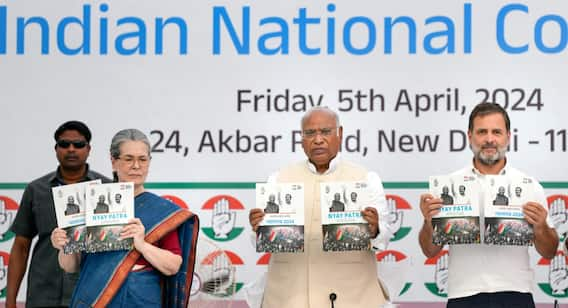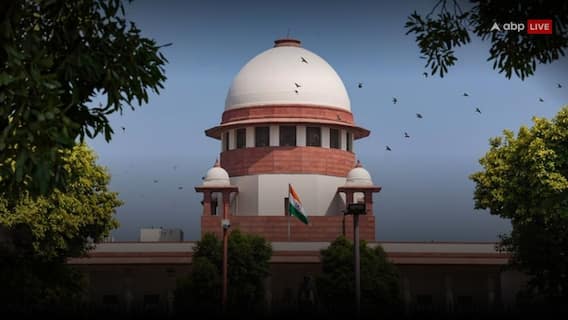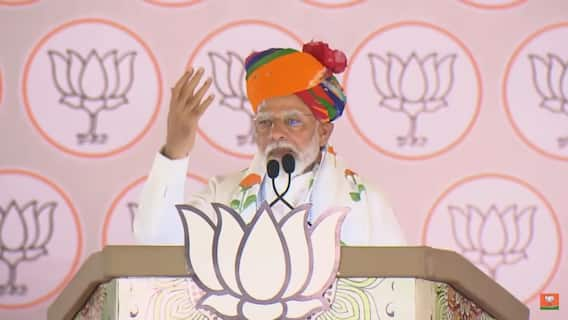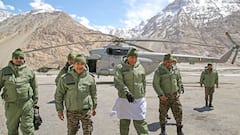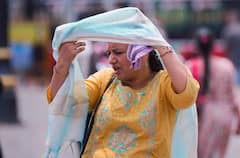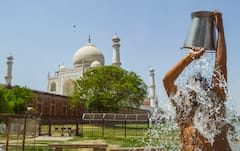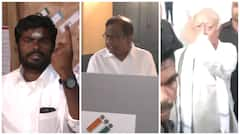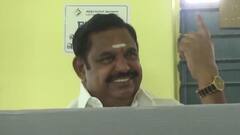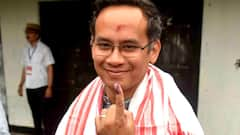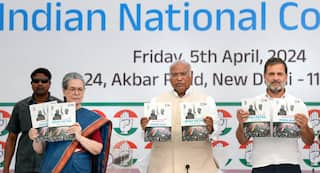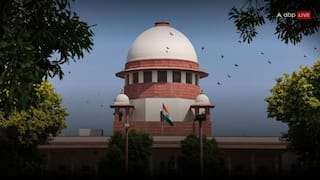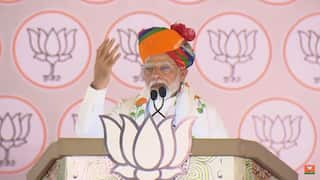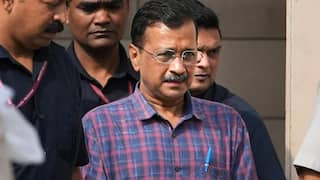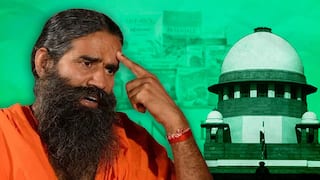Explorer
Advertisement

What tore PV Narasimha Rao, Sonia Gandhi apart
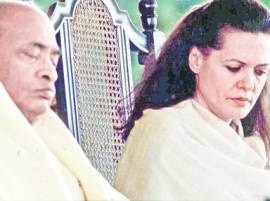
NEW DELHI: P.V. would have turned 95 today. A new biography based on his private papers and diaries has provided fresh insight on the modern-day Chanakya, perceived to be the father of economic liberalisation. But, like most contemporary historians, authors and journalists, Princeton scholar Vinay Sitapati too has failed to provide a direct answer on what exactly went wrong between Rao and Sonia Gandhi.
Some Congressmen in the thick of things during the Rao era feel that mid-way into his tenure, the former Prime Minister had been reluctant to facilitate the return of a Nehru-Gandhi family member to the Congress. Rao was also of the view that Sonia, who lacked experience, could become a "puppet" in the hands of some of his arch-rivals in the party.
Gradually, Sonia is reported to have begun believing that Rao was out to undermine the Nehru-Gandhi legacy. Rao had even developed a coterie of sorts - comprising Matang Singh, Bhuvnesh Chaturvedi, Vidya Charan Shukla, M.S. Bitta and others - that conspired against known baiters such as V. George, K. Karunakaran, Arjun Singh, M.L. Fotedar, Natwar Singh and others.
When Rao took over as Prime Minister in 1991 at the age of 71, little was known about him in spite of his decades of experience in public life - as chief minister of Andhra Pradesh, external affairs minister, Union HRD minister, home minister, finance minister and so on.
His long stint in Delhi had made him a sort of outsider in his native Andhra. But in Delhi, he had many friends and admirers. Indira Gandhi had been extremely fond of him and gave him key assignments in spite of stiff opposition from towering state leaders like M. Channa Reddy, Brahmanand Reddy and Vijay Bhaskar Reddy. He was one of the few to have access to her residence.
After Indira, Rajiv Gandhi too found much to admire in him, including his low-key style of functioning and his ability to defuse even the most volatile of situations. When Indira was assassinated, Rajiv had requested Rao and Mohsina Kidwai to lead the funeral procession.
Both Sonia and Rao were reticent by nature. So when he took over as Prime Minister, the two hardly spoke to each other, preferring to deal with Wajahat Habibullah and Ramu Damodaran instead.
Habibullah, a 1967-batch IAS officer from the Jammu and Kashmir cadre, was drafted in as chief executive of the Rajiv Gandhi Foundation (RGF) headed by Sonia. Damodaran was private secretary to Rao.
Within days of taking over as Prime Minister, Rao had made a gesture that deeply touched Sonia. He had been appointed a trustee of the Rajiv foundation. There was a tussle on where the first RGF meeting would be held. Sonia was keen to have it at 10 Janpath, but some persons close to Rao raised the issue of protocol.
Damodaran communicated to Rao Sonia's request that she was in no mental condition to visit 7 Race Course Road since it used to be Rajiv's office. Sensitive to her feelings, he called up Sonia and told her he would go over to 10 Janpath.
The outside world, however, misconstrued Rao's gesture as a signal that the Prime Minister was paying obeisance to a private citizen.
It has been said that Rao's inept handling of the Ayodhya dispute, focus on economic reforms, tardy probe into the Rajiv assassination and corruption allegations added up to create a deep wedge between him and Sonia. In retrospect, these appear to be contributing factors but the real reason was Sonia's assessment that Rao was systematically trying to undermine the Nehru-Gandhi legacy.
Rao's move to deny Sonia's private secretary, Vincent George, a Rajya Sabha nomination in January 1992 too proved costly, although on the face of it, it appears rather insignificant.
The Congress had then been set to select nominees to the Rajya Sabha from Karnataka. But some senior leaders ganged up against Margaret Alva, who was seeking an unprecedented fourth successive term to the upper House. So, they proposed George's name, though he actually hailed from Kerala.
Rao was hesitant to clear George's name but almost all the party bigwigs, particularly K. Karunakaran and Arjun Singh, were keen that he be nominated. There was no word from Sonia either for or against George.
As Rao was leaving for Russia, he called on Sonia to enquire if she wanted George in the upper House. Sonia made it clear that if George were to be given a ticket, the decision should be based on merit and in keeping with political considerations. Rao understood the point. When the list of candidates was faxed from abroad, George had been denied a ticket and Alva's name was on the list.
This issue was a major factor in the distrust between Sonia and Rao over the next four years (1992-96). It has been claimed that George gradually grew hostile to Rao. Not only was George responsible for widening the wedge between the two, he also had a role in the events that led to the split of the party in 1995 when Congress (Tiwari) was formed.
Disgruntled leaders and party activists unhappy with the Rao regime began to be given access to Sonia. George would call up MPs saying Sonia was free to meet them between 5pm and 7pm on particular days. The message to them was clear - they were welcome to air their grievances to her. Congress members readily obliged George, and the queues outside 10 Janpath were never small.
To the outside world, the importance of George was never fully clear. His role was either exaggerated to some kind of super boss or downgraded to that of a petty clerk. The truth was different.
For 10 years between 1991 and 2001, when he was finally sidelined, George had the distinction of having constant access to Sonia. He was in charge of arranging meetings - be they with senior leaders or grassroots workers, industry captains or supporters from villages - and tracking down party leaders. His supporters even today boast of "George sahib" being able to find any party leader within half an hour - a distinction no one in the party could match. He was loyal, hardworking and efficient, and he never exceeded his brief.
A constant effort was made to keep conveying to Sonia that all was not well under the new government. In 1994, an independent TV producer prepared a capsule on the Congress campaign for the Assembly elections. The presentation was made to Rao and his close associates, but it was rejected on the grounds that it focused on the party's past, starting with Nehru and going on to Indira and Rajiv.
Hours later, the producer was given an audience with Sonia, so he could tell her how he was discouraged from highlighting the family's contribution.
Sonia may have had her own views but George's role was significant. He facilitated the access of several party leaders and MPs who wished to impress upon Sonia that the Congress would lose its character if she did not intervene. Sonia seldom spoke but her willingness to hear out all those unhappy with Rao was indication that she did not approve of the then Prime Minister's style of functioning.
In February 2004, Sonia told journalist Shekhar Gupta at Swaraj Bhavan why she had joined politics in 1998. "Each time I walked passed photographs of my husband and mother-in-law, I felt I am failing in my duty...." She then said it was the rise of the BJP that had prompted her to enter active politics.
-The Telegraph Calcutta
Follow Breaking News on abp LIVE for more latest stories and trending topics. Watch breaking news and top headlines online on abp News LIVE TV
View More
Advertisement
Advertisement
Advertisement
Top Headline
Election 2024
India
Election 2024
Election 2024
Advertisement
Trending News

for smartphones
and tablets
and tablets

Anand Kochukudy
Opinion



